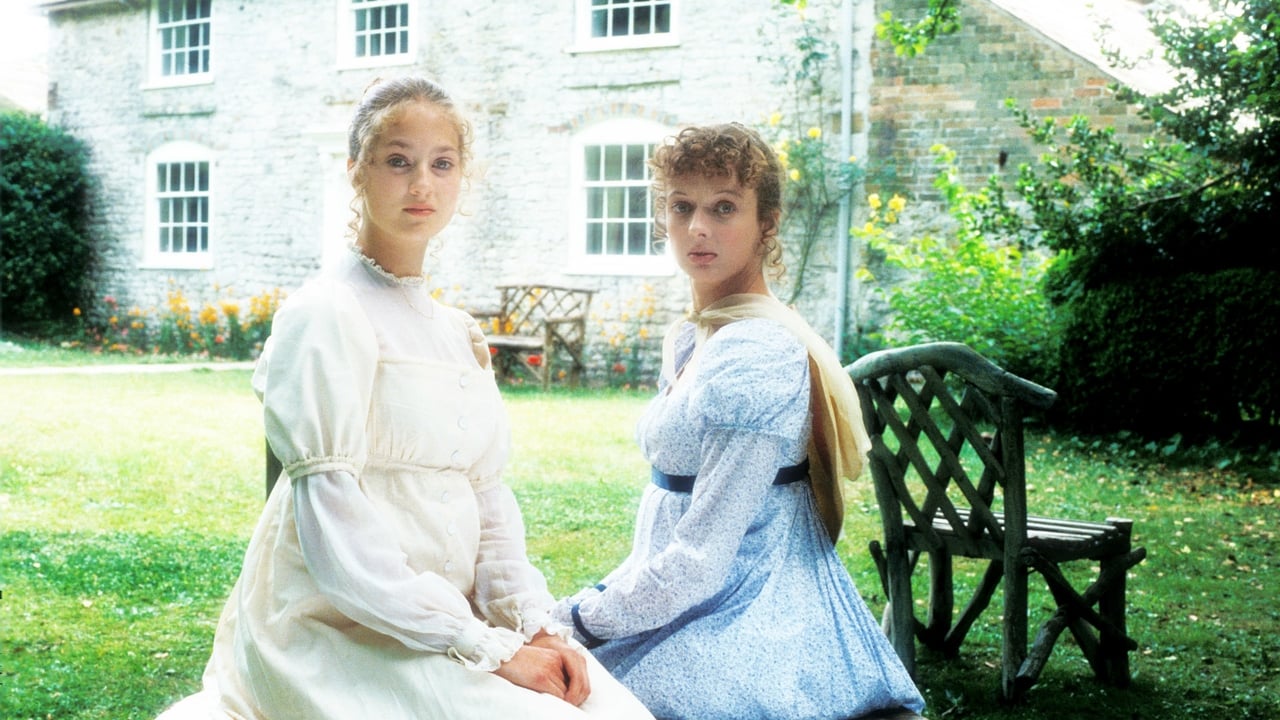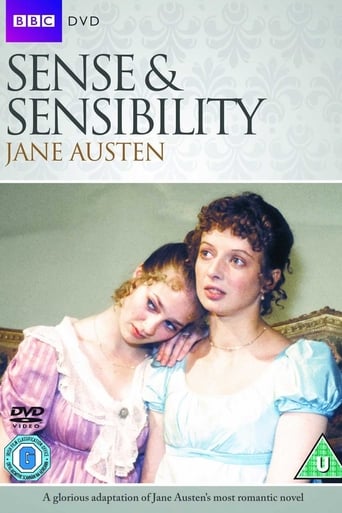

If you like to be scared, if you like to laugh, and if you like to learn a thing or two at the movies, this absolutely cannot be missed.
... View MoreThe best films of this genre always show a path and provide a takeaway for being a better person.
... View MoreIt's the kind of movie you'll want to see a second time with someone who hasn't seen it yet, to remember what it was like to watch it for the first time.
... View MoreIt’s fine. It's literally the definition of a fine movie. You’ve seen it before, you know every beat and outcome before the characters even do. Only question is how much escapism you’re looking for.
... View MoreI was looking forward to seeing another version of this, having just read the book again. Yes, it is pretty close, though I think the decision to leave out Margaret was unwise and spoiled the family dynamics. Overall, the acting seemed to me to be pale and rather lifeless, as though many characters simply read their lines with little true feeling at all. The addition of Lucy Steele's older sister and Lady Middleton added nothing--in the book they were amusing in their way, but here, no; Miss Steele's goofiness was not really shown, which would be the only reason to include her. Also, Fanny was annoyingly low key & snotty, but didn't really come off as the haughty bitch she does in the book. I think part of the problem is that the actors, to be honest, were simply not skilled enough to give the roles the subtle interplay and depth they should have: I found their faces to be stiff, the gestures muted, just NO liveliness, and very little humor. The costumes were very disappointing: I'm sorry but if you have the money and prestige to have lived at Norland, your clothes are going to reflect that somewhat--maybe not fancy but of better quality! Half the time Eleanor was dressed in the dull colors of a nun, and even many of Mary Ann's dresses looked ill-fitted and sloppily made, like something in a high school play! The older ladies clothes had not the least bit of charm, even though they had money, they dressed in simply hideous dresses with a bit of trim down the center. I know the clothes of that era, and these were NOT well done, were badly made and designed and looked cheap.John Middleton was nicely humorous and red-cheeked, though he reminded me constantly of a leprechaun!His mother-in-law came off far too low-key for what she should have been. Though Lucy was catty in her way, she lacked the force of character of the conniving bitch she was in the book--she was MUCH more interestingly played in Ang Lee's film! The relationship between the sisters seemed pallid until right at the last. Willoughby...eh, not impressed--pretty boy blonde with not much more to recommend him. Brandon was so colorless and dull, racing through speeches that SHOULD have had more depth of feeling and subtle play of emotion. Alan Rickman was warm, subtle, likable- -his face was mobile, yet delicately conveying the depth of his feelings, and his voice! OH so much more convincing than anything in this film's version of Brandon!As for the general direction, it was rather dull--at least in Ang Lee's film they did something besides sit around and sew! He actually showed the relationship between MaryAnn an Willoughby developing, gave time to that beginning of intimacy, so that when she loses it in London, you have good idea WHY. The director lost many chances for dramatic play, and ended up with a so-so production. See it if you're a fan of Austen, if nothing else, just for comparison. Ang Lee's version, for all it's faults, has far better acting, a more lively cast, more interesting interplay between the characters, far better costumes, and honestly....I may have to watch it yet again, just to get the bland taste of this one out of my mind!
... View MoreHaving watched the 1995 movie for the first time a few days ago,I decided to watch this fine BBC production again,and found it the more satisfying of the two.The acting was of a good standard;Tracey Childs splendid as Marianne,and Bosco Hogan's interpretation of Edward Ferrers far exceeded Hugh Grant's peculiar effort in the Ang Lee film.The direction and location filming in Dorset/Somerset and the authentic early 1800's feel more than compensated for the budget constraints.Also,Willoughby's telling confession to Eleanor as Marianne lay seriously ill upstairs was,thankfully,retained,unlike the 1995 version.A good miniseries,more Jane Austen than it's "grander" successor!Nine out of ten!
... View MoreIn the 1970s and 1980s, the BBC dramatised all Austen's six completed novels. They reached a high note with Fay Weldon's definitive Pride and Prejudice, which is still the benchmark for screen adaptations of Austen (and far superior to the syrupy 1995 version). This Sense and Sensibility followed two years later and is inevitably something of a let down. In recent years it has also suffered by comparison with Emma Thompson's masterly movie adaptation.This version has the advantage of an extra hour in which to tell the story. It can include characters that Thompson had to omit, such as Lucy's silly elder sister and Lady Middleton and her spoilt children and can include scenes that she had to cut (in particular the confrontations between Elinore and Lady Ferrars and Elinore and Willoughby). It also helps that key characters are closer to their right ages. In the movie, Robert Hardy is not only 30 years too old to be Sir John Middleton, but is actually two years older than the actress playing his mother-in-law. Similarly, Thompson's Elinore and Rickman's Colonel Brandon are a dozen years older than Austen's characters. Overall, it feels like a more faithful adaptation of the book.However, this is not necessarily important. Because Emma Thompson knew she was going to have to condense the story she had to think much more carefully about what she wanted to get from the book. Her free adaptation actually improves on Austen in certain respects. She dramatises the process of Elinore and Edward falling in love (Austen simply tells us this has happened in the prologue). This soon pays dividends, because in the book, apart from one visit to Barton Cottage and a couple of short stilted meetings in London, Edward disappears until the closing chapter. In the book, Marianne and Willoughby fare better, but her eventual husband, Colonel Brandon, also disappears for long stretches and there is relatively little interplay between the two rivals. Emma Thompson realised that the key relationship is actually that between the sisters and that is what she puts at the heart of the story. Their lovers are almost incidental.The failure of this TV version is that although it can be more expansive and include more characters and more incidents, it doesn't have the same sense of purpose. In particular, it never really establishes the relationship between the sisters. Irene Richards (who was a superb Charlotte Lucas in P & P) plays Elinore as somewhat more spiky and confrontational than did Emma Thompson. She is much more openly critical of Marianne and less indulgent with her and for much of the time they seem to actively dislike each other (she is also too nakedly hostile to Lucy Steel). Tracy Childs is a good Marianne, but perhaps too much of a spoilt brat at times. The relationship between the two never quite works and with that failure the production is doomed.Nonetheless, there are incidental benefits. Many of the performances are good. I have a lot of time for Bosco Hogan's Edward and Peter Woodward's Willoughby. I also liked this Mrs Palmer (although the underwritten Mr Palmer suffers in comparison with Hugh Laurie's character). What is ultimately disappointing is the vagueness of the writing and direction. Too often this production simply misses the point of a scene. For example, it is not sufficiently clear that Mrs Ferrars gives precedence to Lucy as a snub to Elinore. Or again, that Fanny invited the Steels to stay with her in order to prevent her husband from inviting Elinore and Marianne. This is a question of fudging simple plot points, but far more inexplicable is the fact that when Willoughby turns up in the middle of the night to see Marianne he is apparently unaware that she is ill - that was the reason he came!Although I think this is probably the most disappointing of the six BBC Austens (Northanger Abbey is less satisfactory but more inventive), it is still a decent enough production and I am glad to have it in my collection. I would recommend it to anyone that wants a more complete version of the book than Thompson and Ang Lee were able to give us. It is not as good as their movie, but is worth a viewing for all that.
... View MoreAn excellent adaptation of the Austen novel, though the production values can`t compare with the later film. The script is faithful to the original. The performances by the male leads are a bit bland.
... View More